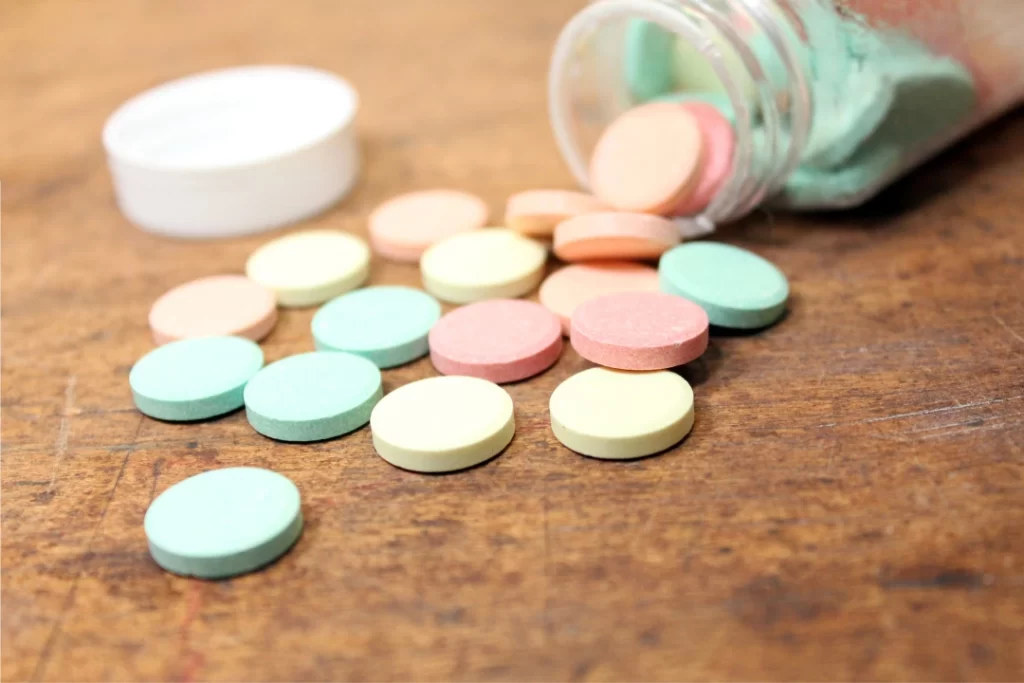What is ADHD Burnout?
Approximately 4.4 percent of American adults suffer from Attention Deficit/Hyperactivity Disorder (ADHD). The condition, usually diagnosed in childhood, is probably the most common neurodevelopment disorder in children and adolescents. To put it colloquially, it’s like the brain never slows down. Treated with a combination of medication and behavioral therapy, kids with this disorder also benefit from a healthy lifestyle. The challenge of simply decelerating is lifelong.
On the flip side, many adults with ADHD are exceptionally creative, perceptive, passionate, hyper-focused, and possess enormous amounts of energy. They are also vulnerable to ADHD burnout. ADHD burnout occurs when individuals take on too much responsibility or an excessive workload. They reach a breaking point, both mentally and physically.

People with ADHD must always take care not to lose track of time. That time blindness can mean as much time is spent on relatively trivial tasks as critical duties. There’s a lack of prioritization and organization–both major ADHD symptoms.
[This article “ADHD Burnout: What it is and What to Do About it” is orignally published in News7Health]
ADHD Burnout Symptoms
Extreme fatigue is the telltale physical sign of ADHD burnout. A person suffering from ADHD burnout may feel guilty, depressed, or embarrassed. They may hyperfocus on some tasks to the point where they stop sleeping and eating. The individual may feel ineffective or become extremely cynical.
Physically, besides exhaustion, those suffering from ADHD burnout may find themselves battling constant colds and infections, gastrointestinal maladies, or headaches. Panic attacks may ensue. Insomnia is common, along with nonproductive and even dangerous forms of stress relief. The instant gratification of shopping, whether in-store or online, can lead to serious debt issues. Drinking and drug use for stress relief results in a further downward spiral.
Many ADHD burnout victims become socially dysfunctional. They become obsessed with discussing difficulties at work, going round and round and alienating family and friends. Those with ADHD burnout may talk a lot, interrupting others and changing the topics of conversation. They tend to take more sick days and may find themselves involved in workplace accidents or injuries. Isolating themselves from colleagues is another potential sign of burnout.

ADHD Burnout Causes
The hyperactivity associated with ADHD frequently leads to poor performance on the job. Poor work performance or feelings of inadequacy, self-loathing, or incompetence can lead to chronic stress, contributing to ADHD burnout. To prove themselves, those with ADHD take on more responsibilities than they can handle. Unlike other forms of neurodivergent burnout, ADHD burnout is frequently self-induced.
Those with ADHD are far more likely to experience challenges at work than their non-ADHD peers. Behavioral problems are more than 40 percent more likely to afflict them. They are fired from jobs roughly six times more often, and twice as apt to quit a job due to boredom. Frequently forced to quit due to hostility from coworkers, they face far more discipline from their bosses.

Typically, people with ADHD push themselves too hard while spreading their energy in too many directions. That’s a recipe for burnout.
You May Also Like:
7 Best Dietary Supplements to Reduce Stress
7 Great Superfoods for Increased Mental Clarity and Focus
Psychological and Behavioral Workarounds for ADHD Burnout
A quiet workspace with minimal distractions can help those dealing with ADHD burnout. So can the use of white noise or noise cancellation devices. Putting a desk against a wall or working in a room by yourself can help. Turning off anything that might interfere with focusing–including cellphones–can prove good workarounds for ADHD burnout relief. The use of apps, timers, and other assistive technology helps keep your attention on track.
Make sure to take regular breaks during the workday just to rest your brain. Since sleep is so often a problem for those coping with ADHD burnout, develop a healthy sleep routine. That might involve turning off all devices, including the TV, at least an hour before bedtime. Yoga, a cup of chamomile tea, and a good book to read in bed can put you in a quiet state where sleep comes more readily.

Other potential workarounds include:
- Working from home as much as possible if the office is too noisy and distracting.
- Time blocking to avoid overscheduling.
- Recording meetings.
- Focus on the essential parts of the job, not the marginal aspects.
- More flexibility with deadlines and schedules.
Most importantly, don’t be afraid to ask for help. Perhaps you need more structure from your supervisor or just more supervision. Discuss providing specific instructions and expectations in writing, along with the creation of a daily routine. Projects broken down into smaller pieces can make work more manageable for the ADHD employee. Bosses should check in with ADHD employees regularly to determine whether there is anything with which they are struggling, and the kind of support they would find useful.
ADHD Burnout and Nutritional Supplementation
Certain nutritional supplementations may help prevent ADHD burnout onset. More importantly, such nutritional supplementation may help in recovering from an ADHD burnout episode. Supplements that may alleviate ADHD burnout or ease its impact include:

- Fish oil–Fish oil contains two critical omega-3 polyunsaturated fatty acids, eicosapentaenoic acid (EPA) and docosahexaenoic acid (DHA). Both contribute to protecting neurons in the brain. A study published in the July 26, 2016 edition of Neuropsychiatric Disease and Treatment found that treatment with these two omega-3 polyunsaturated fatty acids improved the symptoms of those with ADHD. People with ADHD frequently have low levels of EPA and DHA in their blood. Taking fish oil is one alternative. The other is consuming fatty fish such as salmon, sardines, or mackerel on a regular basis. ADHD medication often has side effects, including appetite loss and headaches. Fish oil supplementation or fish consumption has relatively few side effects and possesses other benefits, making them a good choice for those dealing with ADHD or ADHD burnout.

- l-theanine–A combination of I-theanine and caffeine may decease mind wandering, reduce impulsivity, and improve attention in ADHD patients. Both of these ingredients, generally recognized as safe (GRAS) by the FDA, are found in green tea. I-theanine, also known as L-γ-glutamylethylamide, is available in supplement form. I-theanine may reduce stress, improve cognitive function, and maintain normal sleep.
- RealClarity –Real Mushrooms is a Canada-based supplement company seeking to break the mold by offering top-quality mushroom supplements made from nutrient-dense mushrooms, without grain fillers or carriers. Its RealClarity contains a unique blend of Lion’s Mane, Ashwagandha, Rhodiola, and Bacopa mushroom extracts for clarity and focus. Made from certified organic ingredients, the blend is vegan, non-GMO, and gluten-free. Along with increased cognition, mental clarity, and improved focus, RealClarity offers daily immune support.
- Sea moss–Also known as Irish moss, sea moss is a type of nutrient-rich red algae considered a superfood. The moss, which grows abundantly along the Atlantic coasts of Europe and North America, as well as in parts of the Caribbean basin, improves mental functioning. Sea moss may reduce hyperactivity and aid in treating anxiety disorders and mood swings. The complex of vitamins and minerals in Yemaya Organic’s sea moss products also contain bladderwrack and burdock root. Their premium-quality wildcrafted sea moss is harvested from St. Lucia, and it is certified organic, non-GMO and vegan.
- VOKE Energy –This superfood chewable tablet banishes brain fog and allows users to focus on the task at hand. VOKE can help maintain energy, lift mood, and clears thinking. VOKE includes whole Guarana seeds sourced from the Brazilian Amazon, which boosts cognitive performance. It also includes beetroot, long used to reduce inflammation and improve cognition. Green tea leaf caffeine lifts alertness and may contribute to better memory.

Conquering ADHD Burnout
Conquering ADHD burnout is possible, but it may take time and effort. The right supplementation can make a tremendous difference in reducing or alleviating ADHD burnout. However, supplementation is just part of the equation. Adults with ADHD should try to work in fields to which they are well-suited, which lessens potential boredom and bolsters the odds of success. When work truly interests those with ADHD, they can reach the top of the career ladder. With the right treatment, those with ADHD can avoid burnout and lead productive lives.

Further Reading for Additional Reference:
National Institute of Mental Health
Attention Deficit Disorder Association
Important Note: The information contained in this article is for general informational purposes only, and should not be construed as health or medical advice, nor is it intended to diagnose, prevent, treat, or cure any disease or health condition. Before embarking on any diet, fitness regimen, or program of nutritional supplementation, it is advisable to consult your healthcare professional in order to determine its safety and probable efficacy in terms of your individual state of health.
